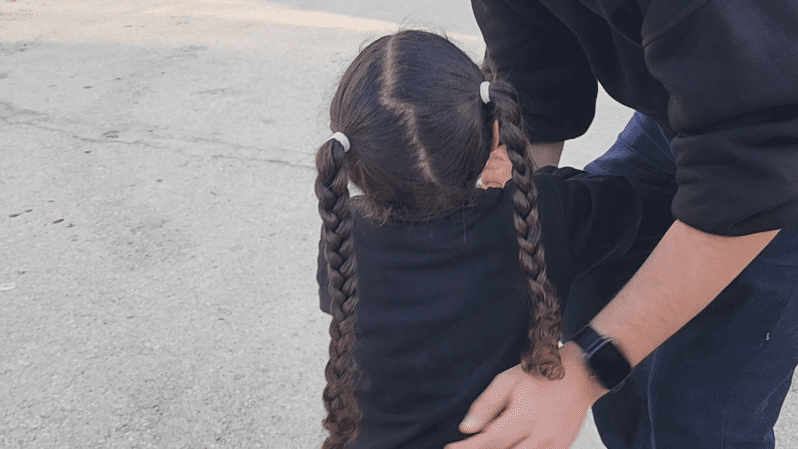The Lebanese Constitution in the Service of Priest Impunity: The Case of Mansour Labaki

The case of Lebanese priest Mansour Labaki carries great social and political significance. The Vatican City church ruling that convicted him of abusing minors is unprecedented in several ways. The ruling was issued against a cleric with great influence within his sect, and the acts to which it pertained were of a distinct nature. Furthermore, Labaki attempted to [clear] his reputation and reverse the effect of the church ruling via the Lebanese judiciary – specifically via filing a claim against nineteen persons; among them the victims that initiated the Vatican’s case against him, and a group of priests who conducted the investigation of his case in France and the Vatican City. As a result of the claim Labaki filed, the situation in Lebanon –where the defendants are Labaki’s victims and his judges– is a flip image of the situation in the two aforementioned countries, where only Labaki himself was on trial.
Given the above, following the case sheds light on Lebanon’s sectarian political system. What is the significance of Labaki’s choice to file his claim in Lebanon alone, even though twelve of the defendants are European and live in Europe? Did he find Lebanon to be an environment less strict on child abuse than the Vatican City and France, or did he prefer to resort to the courts in a country where he has great influence, even if they are more vulnerable [to outside influence] by international standards than the courts in Europe in general and, France in particular? More importantly, how might one interpret the judicial decisions issued in the case thus far? This article is an attempt to address these questions.
Lebanon’s Nurturing Environment: The Best Interest of the Sects’ Iconic Figures
When debate in the Labaki case began, some parties ferociously defended him and condemned the attack on him because of his eminent status. However, the fact that the ruling they opposed was issued by the Vatican City meant that these parties could not accuse the [Lebanese] judiciary or another sect of targeting this lofty figure. Their objections carried less weight than they may otherwise have carried. Consequently, the inevitable scapegoats were the people who, according to these objectors, fabricated the accusations against Labaki and perverted the course of the Vatican’s justice. The complainant victims became the subject of continuous accusations and media harassment because they dared to shatter the image of the “venerable man”. The latest contributor to the cacophony of attacks on the victims is Maronite Patriarch Bechara Boutros al-Rahi himself, who did not hesitate to repeat Labaki’s narrative about the motivations of the women accusing him or to slander some of them.[1]
Such is the situation today. loud voices are glorifying Labaki and portraying him as incapable of such errors. The same voices are attacking the victims, accusing them of forming a criminal association. Naturally, these voices do not hesitate to attack media outlets that may tell a different story, or provide a platform to the victims or their representatives. Despite the difficulty of invoking sectarianism in a case like this one, the president of the Catholic Media Center, Father Abdo Abou Kasm, had no qualms complaining that, “There are many molesters. Why the focus on the Church?”. He also asked, “Have you raised the issue with Islam?”. Notably, he made these statements despite denying that there is any molestation in Lebanon on account of its small size, and despite agreeing to be interviewed by The Legal Agenda conditional on avoiding the topic of Labaki. He thereby seemed to be demanding balanced treatment of the sects under pain of remaining silent.
The same climate surrounded Tarek Mallah’s case against the Islamic Orphanage (Dar al-Aytam al-Islamiya). Mallah claimed to have been raped in the orphanage over the course of five years. Social Affairs Minister Rashid Derbas, who bares the primary responsibility for ensuring the proper management of the orphanages that receive extensive funding from his ministry, found no reason to listen to the complaints by Mallah and by others who broke their silence. On the contrary, the minister pounced on Mallah with the most vulgar words, accusing him of extortion and lying in order to unconditionally defend the orphanage and its exceptional role in caring for children. Like Abdo Abou Kasm, the minister –who has leftist roots– made a sectarian allusion, accusing the organizations supporting Mallah of waging a sectarian campaign against the Sunni sect. Notably, the people who claimed to have been raped or molested during their childhood belong to the same sect as the accused party, and the issues they raised affect not only them, but also the hundreds or thousands of children entrusted to places of care run by members or parties from their own sects.
Nevertheless, the sectarian game [of pointing fingers at other sects] reduces the sects to their icons, who consequently enjoy privileges and immunities. The Maronite and Sunni sects therefore have an interest in protecting their icons. There are no qualms about turning a blind eye to the crimes against and the suffering of Maronite and Sunni children in these sects’ care facilities, or about snubbing these children in order to protect sectarian interest. Moreover, any complaint that these children make against their sect’s icon is seen as a betrayal of the sect concerned or a campaign against it (what might the other sects say about us?). From this angle, Lebanon’s peculiar character appears to force a reordering of interests: the paramount interest is not the best interest of the child, as declared in the Convention on the Rights of the Child (which Lebanon has ratified), but the best interest of the sectarian authority figure, even if he is a child abuser. The greater abuse in such a case is not the cleric’s abuse of the children, but the children’s allegation against him; and, there are no qualms about considering these children a criminal association.
This inversion of values explains the discourse of the Lebanese patriarch and the social affairs minister, as well as all the statements that appear here and there defending the icon and zealously harassing the victims. It also explains the ongoing silence of the public prosecution offices, as well as the Lebanese state on Labaki’s crimes –which the Vatican’s ruling corroborated– and their reluctance to lift a finger against him. Finally, it explains why Labaki’s lawyer, Antoine Akl, filed a criminal case against the victims charging them with a long list of crimes, the foremost of which is forming a criminal association. But how might the judiciary act in this case? Does its decisions conform to this climate, strengthening the influence of Nabaki and, more broadly, the sects’ icons? Or do they reflect an attempt to alter this climate and recognize the victims’ rights?
The Judicial Decisions: Sectarian Interests Meet Foreign Interests
Thus far, two judicial decisions have been issued in Labaki’s Lebanese case. The first, was issued on April 14, 2014 by the investigating judge in Mount Lebanon Peter Germanos. This decision rejected the complaint on account of lack of jurisdiction. The second was issued on March 25, 2016 by the Indictment Division in Mount Lebanon under the presidency of Afif al-Hakim. It overturned the part of the aforementioned ruling that rejected the complaint against the Lebanese defendants. Whoever reads the rulings notices that the two decisions reconciled, to one extent or another, the best interest of the sects’ icons with imposing foreign interests related to relations with the Vatican and France.
The Investigating Judge’s Decision: the Church’s Laws Are Supreme
Most importantly, the investigating judge’s decision held that the Church’s laws and the provisions of the Lebanese Constitution which protects the sects’ rights to administer affairs related to them, have the exclusive authority to settle such complaints and their derivatives, irrespective of their substance or source. Accordingly, the investigating judge rejected the complaint on account of no jurisdiction. While the decision washes the judiciary’s hands off Labaki’s claim against the defendants, it also immunizes the Church and all other sects against any future accountability by making them the sole authority that can hold clerics and workers in their institutions accountable.
Notably, the ruling granted this immunity by referring to the Church’s laws, which are not binding on the state nor the Constitution, without any elaboration or justification. Regarding the Constitution, the only guarantee granted to the sects appears in Article 9 and is limited to the population’s right to regulate personal status matters in accordance with their faiths. On the other hand, the state retains the responsibility of examining all other matters, especially matters related to public order such as criminal acts. The decision therefore employed a very broad interpretation of the matters that fall within the authority guaranteed to the sects. This interpretation contradicts not only the Constitution’s text, but also the entire legal system that has prevailed since it was written; to suggest otherwise only leads to the absurd conclusion that the sex life of monks and priests, including any abuses and crimes it involves, is a personal status matter. Naturally, this interpretation strengthens, rather than restricts, the concept of the best interest of the sects’ icons.
The Indictment Division: It is strictly a Lebanese Matter
The Indictment Division’s decision differed. While it retreated fully from the aforementioned interpretation, it excluded foreigners from the case pursuant to the rules of jurisdiction. Accordingly, it overturned the initial decision only to restrict the case to the Lebanese citizens. To justify discriminating between the defendants, the Indictment Division stated that Lebanon’s criminal legislation is inapplicable to a foreigner who commits a crime overseas, unless the crime threatens the security of the Lebanese state or the foreigner comes to stay in Lebanon after the fact. It also stated that Lebanese law applies to Lebanese persons even if they commit a felony or misdemeanor overseas, unless said crimes are not punishable under the law of the country in which they occurred. Note that the decision ruled out, on the other hand, any legal analysis that leads to the prosecution of these persons on account of the connection between their acts and the acts of the Lebanese defendants, or because the alleged acts were carried out via the internet.
But turning it into an exclusively Lebanese case, the decision in its reasoning, isolated the case from foreign influence and stayed clear of provoking [negative] reactions in France and the Vatican. The most concerning thing about Lebanonizing the case is that it renders it more receptive to the exigencies of the Lebanese environment mentioned earlier, and isolates it from the pressures that Labaki and his supporters (among them influential figures within the Maronite Church) may face from France and the Vatican and their potential ramifications. In such a situation and such an environment, there is a great responsibility to support the victims to ensure due process, so let’s face up to it.
This article is an edited translation from Arabic.
__________
[1] Interview with Patriarch Bechara Boutros al-Rahi on March 18, 2016, Aintoura; also, see: “They Said About Him in His Defense”, The Legal Agenda, Issue No. 39.



